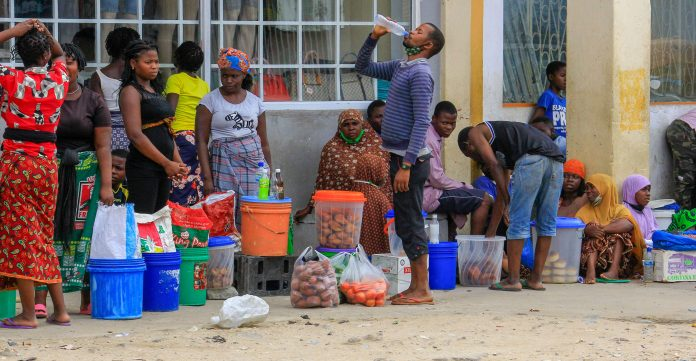Murdered Mozambican lawyer Elvino Dias wins NGO's Nelson Mandela prize
Protection of women informal traders under the spotlight in Nampula

Photo: Ikweli
The Mozambican Support Association for Women and Girls (OPHENTA) in Nampula on Thursday organised a discussion on the safety of women in the informal trade sector in the most important municipality of the northern part of the country.
Women resort to the informal economy to meet their daily needs, and should therefore be protected, OPHENTA programme officer Marlene Julane said at the opening of the virtual meeting.
Julane said that the women in informal trade recurrently complain of the lack of space to conduct business, of compulsory removal from the streets, of their products being seized, and various other violations.
The meeting served to bridge the gap between women in the informal trade sector and Nampula municipal structures, so as to jointly study how to protect them.
The president of the Association of Women Practitioners of Informal Trade, Ana Henriqueta Rachide, said that women experienced violence on a daily basis, and had been facing additional difficulties as a result of the Covid-19 pandemic.
Women were robbed as they returned home after work, and the municipal and inspection police had been seizing their goods.
Several women vendors gave evidence at the meeting, the dominant topic being the inhuman treatment they suffered at the hands of municipal police officers.
One vendor trading at the entrance to the station in the Mutauanha neighbourhood said that violence by municipal police was routine. “I’m a widow, where will I end up with my children?” Melita Lino asked.
The pandemic was also cited as one of the problems that informal women traders. “We have been suffering since the coronavirus matters started,” Lino said. “We are asking for ‘barracas’. We want stalls, so that we can be left in peace.”
Nampula Municipal Council Director of Communication and Image Nelson Carvalho reviewed the Municipal Code of Ordinances, focussing on article 45, which regulates cleanliness in public places.
Carvalho said that informal traders had not been helping maintain hygiene standards in the municipality. “The vendors practice commerce in the streets, in violation of ordinances, and without observing minimum hygiene requirements,” Carvalho said.
The Nampula Municipal Council member also said that force would be used to “guarantee the safety of the vendors themselves”, mentioning particularly Avenida do Trabalho near the railway station, which, he said, became impassable when trains arrive.












Leave a Reply
Be the First to Comment!
You must be logged in to post a comment.
You must be logged in to post a comment.